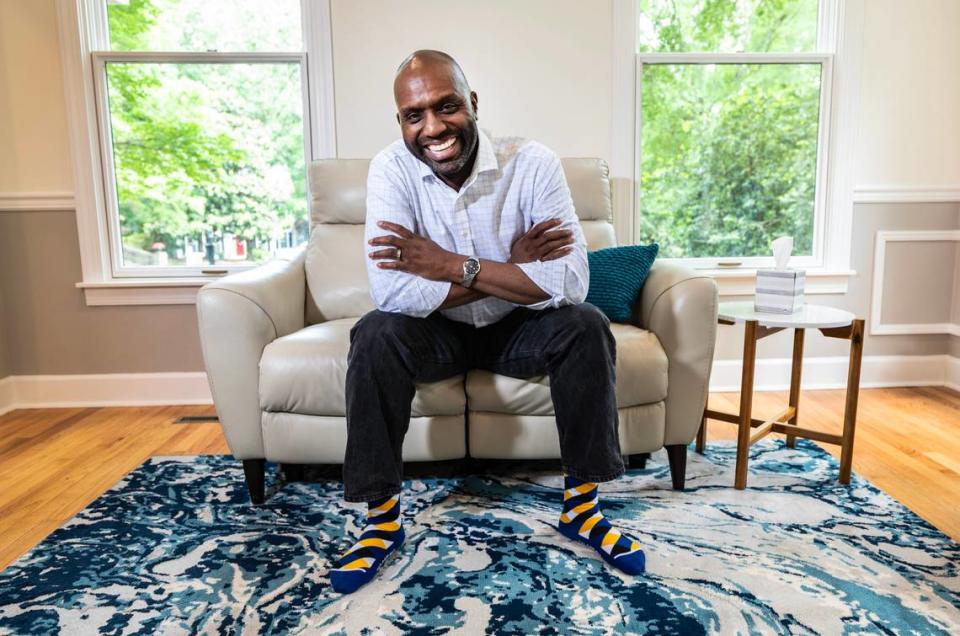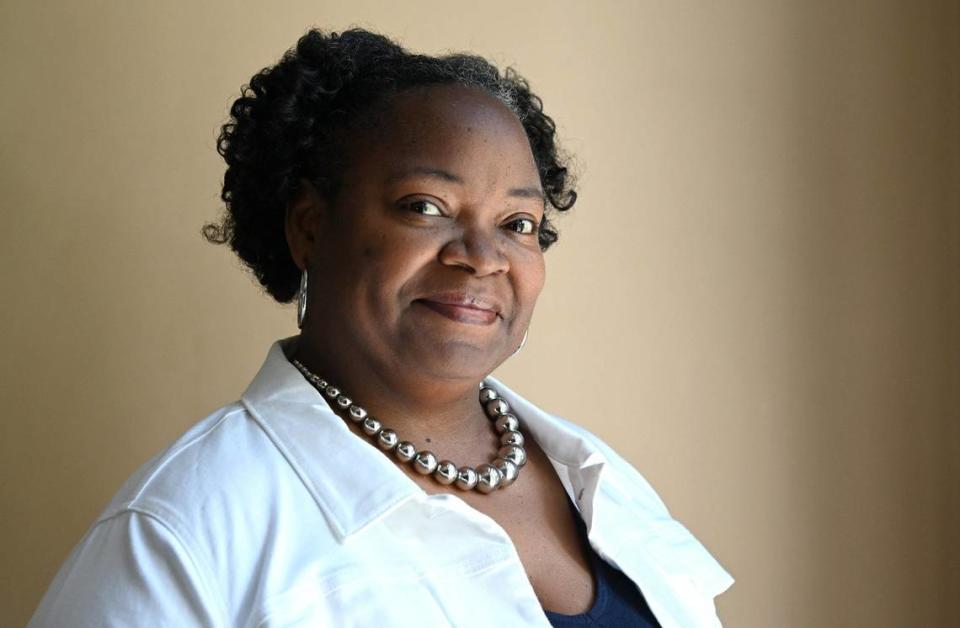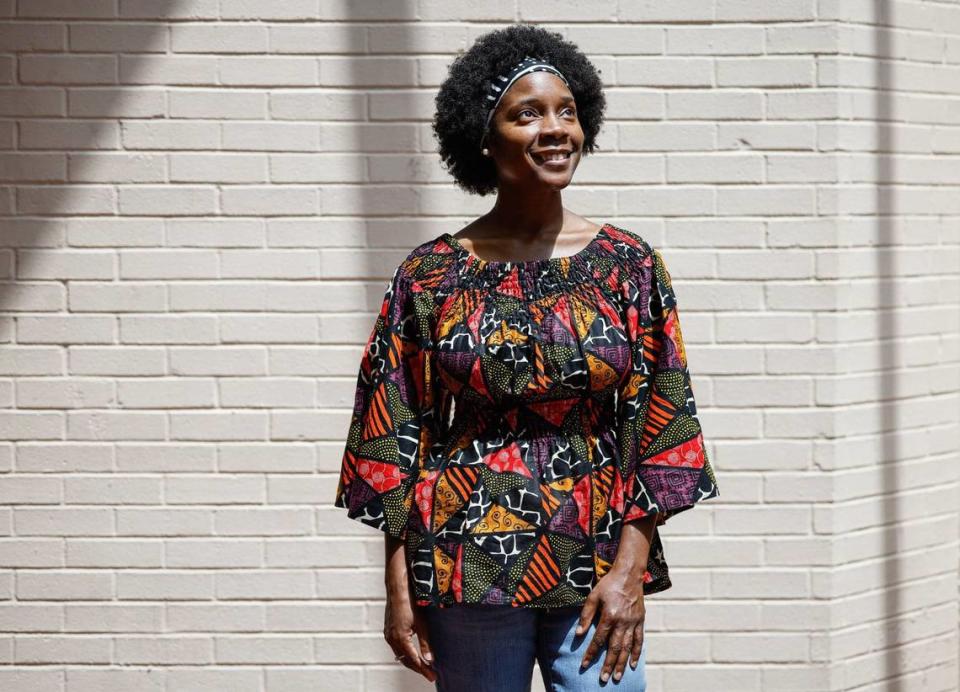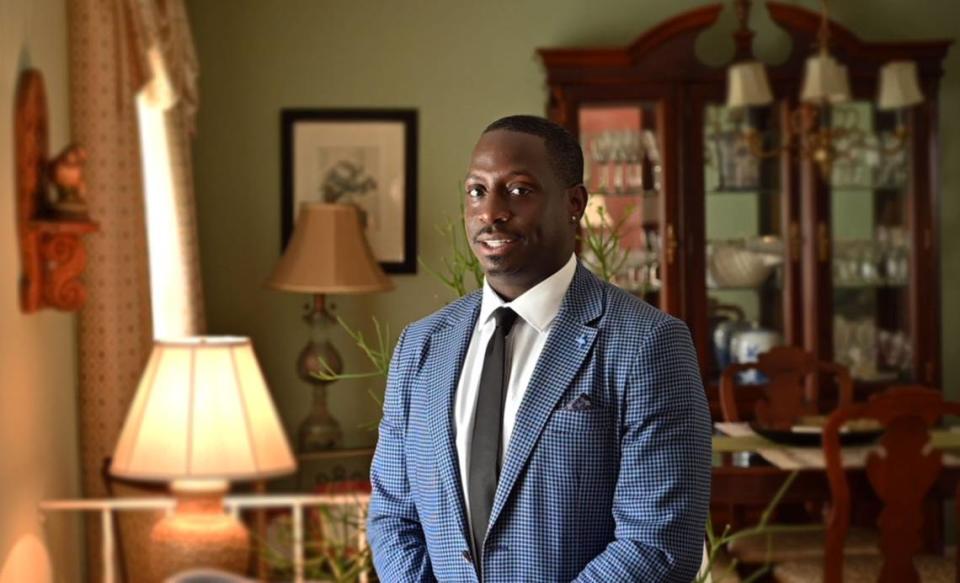‘I’m gonna get there.’ How a unique scholarship helped 4 Charlotteans get their degrees
A sports agent. A Christian life coach. A mechanical engineer.
These are some of the career paths followed by alumni of The Greater Steps Scholars program. It exclusively provides college funding for teens and young adults in communities managed by the city’s housing authority, now called Inlivian. After four decades, it has hit a noteworthy milestone — 1,000 students who have been awarded scholarships for college.
The program is the brainchild of John T. Crawford, who raised money for children living in public housing to help them afford college. The idea began with single request and blossomed into a $5 million endowment, now managed by the Foundation for the Carolinas.
The Charlotte Observer caught up with some of the earliest recipients and talked to them about their lives in public housing and how the program helped.
40 years. 1,000 student awards. What’s next for this one-of-a kind Charlotte scholarship?
Albert Blake
Received scholarship in 1983 — ‘I’m gonna get there’

Playing jacks, marbles, salvaging old bicycles and then riding them — those were the activities that saturated Albert Blake’s childhood during the late 1970s.
The now 60-year-old Chapel Hill resident remembers days playing near warehouses and factories, now the site of Camp North End.
Blake lived in a public housing community called Fairview Homes near Oaklawn Avenue, off Beatties Ford Road in Charlotte, with his single mother and younger brother.
“We had a lot of what we’d call neighborhood moms that would frequent the neighborhood and kind of keep a pulse on who the bad kids were in that neighborhood,” he said.
Blake said neighborhood moms often directed police to certain blocks because of unsavory activity. But the same moms looked out for him. His own mother was loving and made sure there was food on the table and they had clean clothes, he said. But she ran a tight household with strict rules.
“We had to be home before the streetlights came on,” Blake said. “She was like, ‘hey if you’re not home by then, you sleep out in the street.’ ”
Blake’s neighborhood school was West Charlotte High School, but after Charlotte-Mecklenburg Schools completed redistricting in the late 1970s, Blake was bussed to attend Independence High School near Mint Hill, he said.
Attending a predominantly white school expanded his world view, he said. Meanwhile, near his apartment, a bustling new development with fancy homes and manicured lawns emerged. Blake knew that was the life he wanted for himself — to live in a nice house, with a professional job and away from the growing ugliness he saw in his community.
“I didn’t have any money. My mom didn’t have any money. I was pretty good (at) math. I didn’t know how I was gonna get to college,“ he said. “But, I’m gonna get there. And so, anything that looked like there was going to be a way out, I was volunteering and asking questions.”
Blake’s plan originally was to attend community college, take prerequisites, work a job, save up money and then transfer to UNC Charlotte. Then he learned about a new scholarship program for youth living in public housing.
Housing authority leadership shared the info in the community rooms and hubs within each public housing complex. There, Blake met several people wanting to help youth in public housing, who put him in touch with John Crawford.
With a scholarship from the Charlotte Housing Authority, other school financial aid and $20 in spot cash from his older brother, Blake enrolled at North Carolina A&T University in 1983. He earned a bachelor’s in mechanical engineering, which led to jobs working as a civilian engineer for the U.S. Department of the Army and at the Pentagon. Blake also earned two master’s degrees in engineering.
“Sometimes people see things in you that you don’t see in yourself,” Blake said. “I didn’t want to be up in the projects anymore. There are some things I want to do, places I want to go, people I want to meet, and I just stepped out there.”
Ladreon Hare
Received scholarship in 1990 — ‘It was a second family’

The summer after second grade, Ladreon Hare tried to prove numbers weren’t infinite.
“My math teacher had told me numbers were infinite, and I didn’t believe her,” Hare said. “I asked my mom like, ‘What do you mean you can just keep adding zeros?’”
Following the summer, she’d return to school for third grade and admit to her teacher she was, in fact, right. This was just one of many projects Hare gave herself over summers as a child, eagerly waiting for school to start again.
“I always loved school,” Hare said.
She only missed three days of school from the beginning of elementary school through high school graduation. So, for the curious and ambitious Myers Park High School grad, college was always a foregone conclusion.
“I felt like there was enough money out there for me, and I was always very focused on my grades,” she said
She and her family were skeptical of scholarships that purported to “save” low-income kids. After all, self-motivation and academic prowess were never a problem for Hare.
“Sometimes the narrative for the people who want to help people is more about them than the people they’re trying to help,” Hare said. “They want to say, ‘These students wouldn’t have been anything or gone anywhere without our help,’ and we didn’t like that narrative.”
So, John Crawford personally visited Hare at Charlotte’s Southside Homes complex, where she lived with her grandmother and two aunts, to convince her to apply for the Greater Steps Scholarship.
“He explained the mentorship piece of it and what it was really about in addition to the money, which is what really convinced me to apply,” Hare said.
Each student in the program receives a mentor in their field who can help them navigate their time in college and beyond. Hare enrolled at North Carolina A&T State University in 1990, where she studied architectural engineering. Her mentor was Carole Hoefener, a Charlotte architect and former board chair of the Charlotte Housing Authority, now called Inlivian.
“Having someone through the mentorship portion of it was a huge plus,” Hare said. “I had someone to bounce ideas off of and help me plan what my next steps would be.”
Hare went on to become a mechanical design engineer and currently works for a Charlotte firm that provides engineering services to power plants. She’s also still involved in the scholarship program and previously served as its board chair.
Since her days as a recipient, the program has increased its programming, including study skills, financial planning classes and mentorship opportunities to help students with more than just financing their degrees, she said. Hare also continues to meet with the peers she met during the program, most of whom are still in the Charlotte area. For Hare, the relationships are what truly propelled her forward.
“It was a second family,” Hare said.
Crystal Pratt

Received scholarship in 2001 — ‘It’s a celebration of education’
Crystal Pratt has made a career of helping others imagine what’s possible.
She worked as a career counselor at UNC Charlotte and Central Piedmont Community College before pivoting this year to become a Christian life coach.
“I worked helping students, just like someone helped me, in figuring out what their career path was.” Pratt said. “Now, instead of focusing on helping people figure out their career, I focus on helping people through their issues in life.”
The career shift wasn’t the first time Pratt changed course. As a kid, she didn’t even want to go to college.
“I loved music and would tinker around with a keyboard I got from the thrift store, so I really wanted to be a music producer,” Pratt said.
She was a curious and intelligent kid, and grades weren’t a problem. Pratt was an honors student at Myers Park High School who enjoyed English and debate class. So when Crystal Pratt told her mother she didn’t want to go to college, she was dismayed.
“My mother worked at Central Piedmont Community College – and still does – so she thought ‘Oh my goodness, my own child doesn’t want to go to college,’” Pratt said.
A neighbor of theirs in their close-knit community of Alive Oaks – a neighborhood that sat across from SouthPark Mall at the time – was enrolled in college. Pratt’s mother invited him to come speak with her about college life.
“It seemed pretty cool, and I thought, ‘I can go to school for whatever I’m interested in,’” Pratt said.
Then, one of the program coordinators for The Greater Steps Scholars knocked on Pratt’s door and encouraged her to apply for the funding.
“All of that really changed my attitude about college,” Pratt said.
She enrolled at Winston-Salem State University in 2001. With the Greater Steps scholarship and others, she didn’t pay a dime for college, graduating with honors and a degree in mass communications in 2005. Shortly after, she bought her first home.
“I was able to buy a house when I was 22, right out of college, because I didn’t have any debt,” Pratt said.
She says the scholarship has been “lifesaving,” not only because of the access it gave her to education, but also because of the community she’s found in the other alumni. She continues to get together with current and former Greater Steps scholars and was formerly chair of the scholarship’s alumni association.
“We really are a family,” Pratt said. “I told them, ‘We’re going to be in wheelchairs when we’re old, rolling each other around, putting teeth in each others’ mouths.’”
They still have a yearly celebration of all the program’s past and current scholars. Pratt says what started as a cookout in John Crawford’s backyard has evolved into a full-fledged production complete with catering and DJ’s. Still, Pratt says, the core is the same.
“It’s a celebration of education, a celebration of mentorship, a celebration of just being successful in life,” Pratt said. “The legacy of the whole organization is just incredible.”
Chris Davis
Received scholarship in 2004 — ‘I just knew I needed to stay busy’

After moving around from different homes during his younger years, Chris Davis and his family moved to First Ward in the early 2000s.
The public housing community in uptown Charlotte was fairly new, but the environment could be dicey for Davis if he wasn’t careful. There was crime, theft, addiction and “just people you know, smoking weed or dealing drugs,” he said.
Now 38, Davis said he had a near miss once: he inadvertently came across a box in a park near his home that had drugs in it. He thought it was a box of white packing material.
“I remember a guy pulling out a gun and ‘he said what the f--- are you doing?’ And then he said ‘get out of here.’ That was a turning point,” Davis said.
Already a standout track runner from years of doing AAU competitions by the time he attended Providence High School, Davis knew he needed to keep his eyes on the prize – an athletic scholarship for college.
“The only way to stay out of trouble was to run track,” he told the Charlotte Observer. “‘I just knew I needed to stay busy.”
Midway through high school, Davis announced to family members he set his sights on North Carolina Central University.
Many people living in housing authority properties knew about John Crawford and the scholarship he launched.
“My mom went into the office where we lived and she asked about any scholarship funds,” Davis said. “I was already seeking scholarships for track, but we needed additional ones, right, because it didn’t cover a full scholarship to North Carolina Central.”
Beyond applying and being awarded a scholarship from the Greater Steps Scholars, Davis said the key for him was the connections he made and the lifelong mentoring.
Coming into the family of scholars and meeting Crawford opened doors for Davis, who graduated North Carolina Central University in 2008 with a degree in business. He parlayed that experience into a career as a sports agent. While in the scholars program, he became a speaker for the organization and a mentor.
“Where will you ever make sound (and) solid connections, like if you don’t seek educational attainment? “ he said.


